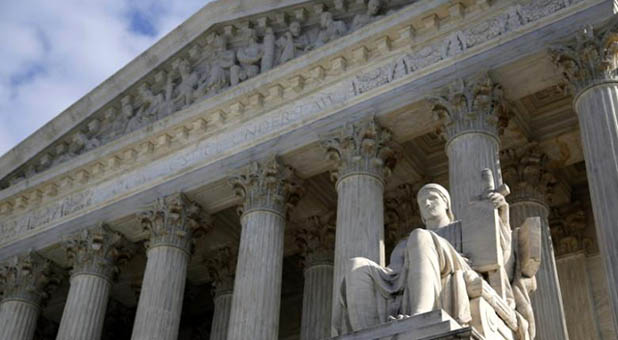The U.S. Supreme Court issued a decision Monday at its final conference of the 2017 spring term with regard to the case of Trinity Lutheran’s case against the State of Missouri.
The court determined, 7-2, that Missouri was wrong to deny the church a grant to assist in the purchase of ground-up tires to be used as a safety surface for its daycare’s playgrounds. Chief Justice John Roberts issued the opinion of the court, which was joined by associate justices Anthony Kennedy, Elena Kagan, Stephen Breyer and Samuel Alito, that stated, in part:
The Missouri Department of Natural Resources has not subjected anyone to chains or torture on account of religion. And the result of the state’s policy is nothing so dramatic as the denial of political office. The consequence is, in all likelihood, a few extra scraped knees. But the exclusion of Trinity Lutheran from a public benefit for which it is otherwise qualified, solely because it is a church, is odious to our Constitution all the same, and cannot stand.
The judgment of the United States Court of Appeals for the Eighth Circuit is reversed, and the case is remanded for further proceedings consistent with this opinion.
Associate justices Clarence Thomas and Neil Gorsuch, President Donald Trump’s addition to the high court, joined each other’s concurring opinions. Associate Justice Sonia Sotomayor wrote a scathing dissent, which Associate Justice Ruth Bader Ginsburg joined.
Thomas wrote, in part:
The court today reaffirms that “denying a generally available benefit solely on account of religious identity imposes a penalty on the free exercise of religion that can be justified,” if at all, “only by a state interest ‘of the highest order'” … The Free Exercise Clause, which generally prohibits laws that facially discriminate against religion, compels this conclusion.
Gorsuch’s opinion highlights why so many evangelicals were excited to see him join the Supreme Court. He wrote:
Missouri’s law bars Trinity Lutheran from participating in a public benefits program only because it is a church. I agree this violates the First Amendment, and I am pleased to join nearly all of the court’s opinion. I offer only two modest qualifications.
First, the court leaves open the possibility a useful distinction might be drawn between laws that discriminate on the basis of religious status and religious use … Respectfully, I harbor doubts about the stability of such a line. Does a religious man say grace before dinner? Or does a man begin his meal in a religious manner? Is it a religious group that built the playground? Or did a group build the playground so it might be used to advance a religious mission? The distinction blurs in much the same way the line between acts and omissions can blur when stared at too long, leaving us to ask (for example) whether the man who drowns by awaiting the incoming tide does so by act (coming upon the sea) or omission (allowing the sea to come upon him) … Often enough the same facts can be described both ways.
Neither do I see why the First Amendment’s Free Exercise Clause should care. After all, that clause guarantees the free exercise of religion, not just the right to inward belief (or status) … And this court has long explained that government may not “devise mechanisms, overt or disguised, designed to persecute or oppress a religion or its practices” … Generally, the government may not force people to choose between participation in a public program and their right to free exercise of religion … I don’t see why it should matter whether we describe that benefit, say, as closed to Lutherans (status) or closed to people who do Lutheran things (use). It is free exercise either way.
For these reasons, reliance on the status-use distinction does not suffice for me to distinguish Locke v. Davey … In that case, this court upheld a funding restriction barring a student from using a scholarship to pursue a degree in devotional theology. But can it really matter whether the restriction in Locke was phrased in terms of use instead of status (for was it a student who wanted a vocational degree in religion or was it a religious student who wanted the necessary education for his chosen vocation?). If that case can be correct and distinguished, it seems it might be only because of the opinion’s claim of a long tradition against the use of public funds for training of the clergy, a tradition the court correctly explains has no analogue here …
Second and for similar reasons, I am unable to join the footnoted observation … that “[t]his case involves express discrimination based on religious identity with respect to playground resurfacing.” Of course the footnote is entirely correct, but I worry that some might mistakenly read it to suggest that only “playground resurfacing” cases, or only those with some association with children’s safety or health, or perhaps some other social good we find sufficiently worthy, are governed by the legal rules recounted in and faithfully applied by the court’s opinion. Such a reading would be unreasonable for our cases are “governed by general principles, rather than ad hoc improvisations” … And the general principles here do not permit discrimination against religious exercise—whether on the playground or anywhere else.
Click here to read the entire opinion, concurring opinions and the dissent. Alliance Defending Freedom, which represented the church, has not yet responded to the decision. {eoa}
See an error in this article?
To contact us or to submit an article






















